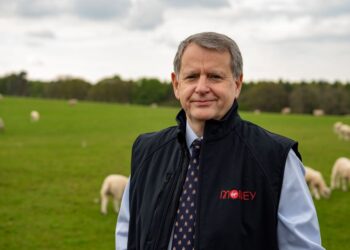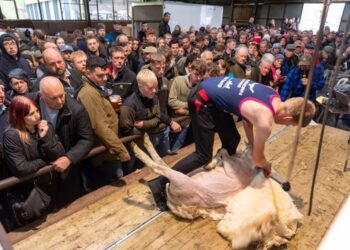
It’s not that often that I sit and watch the TV in the evening, however I’m now finding myself even more reluctant to turn it on, as every other advert seems to be pushing alternative vegan options to meat.
There’s now a trend, known as Veganuary, which encourages people to try a vegan diet throughout January.
Now normally I don’t entertain the controversial topic of how people should eat and what their diet should consist of.
I believe in a balanced diet in terms of nutritional content and how people achieve that is for individuals to decide, without judgement and criticism.
I have absolute respect for people who have consciously chosen to adopt a vegan lifestyle and live by that all year round. I find that generally these are the people who have made an informed decision that is based on their values, ethics and principles.
I respect them for following their own moral compass, even if that differs to my own.
However, I really struggle with Veganuary.
It’s not the fact that people are trying a meat-free diet, fair play if that’s what they want to do, but I find Veganuary quite ironic.
You see, Veganuary is supposedly meant to promote a diet that does not decimate forests, pollute rivers and oceans, exacerbate climate change and drive wild animal populations to extinction.

The message is let’s stop eating meat for a month and together we’ll save the planet.
What makes this ironic is that whoever came up with the concept has chosen the month when the UK has the most limited range of homegrown seasonal fruit and vegetables available to encourage everyone to swap diets!
So, to cater for this trend, we find ourselves flying ‘trendy vegan friendly’ foods like avocados and almond milk, thousands of miles just to fulfil the Veganuary-based demand.
Let’s take the avocado, as it is so popular within the vegan diet.
Every avocado requires 320 litres of water to grow.
To get to the UK they are transported by boat using a mere 63,000 gallons of fuel per day. It is thought that avocado production alone has driven 30-40 per cent of deforestation in Mexico.
To put things into perspective, if you wanted to consume the same calorific intake you could get from eating one cow (which is close to a million calories), you would have to eat roughly 6,250 avocados! I’ll let you do the maths.
This year though, we are fighting back, I say we – I mean the farmers, the butchers, the food producers and more. There has been a huge push to consider the impact of everything you eat (meat or plant-based) and the consequences this has to our planet, no matter what diet you might be following. It has been called Regenuary.
This is absolutely something I can get behind.
It focuses on eating seasonally, sustainably, locally and from regenerative agriculture systems.
That means consuming food from farming principles and practices that increase biodiversity, enrich the soil, uphold the highest animal welfare standards, while aiming to capture as much carbon as possible into the soil, therefore reversing current global trends of atmospheric accumulation and climate change.
I believe this is something we all can get involved with.
It is an easy change to make, it just involves us all paying more attention to what we are consuming.
It encourages each and every one of us to really consider the wider implications of our food choices.
It we adopt the principles of Regenuary, we are taking responsibility not just for our diet but for the production methods, the environmental impact and the sustainability of farming in the UK.
By taking this approach we are investing in our local agricultural suppliers, we are minimising the carbon footprint of food, opting for a healthy sustainable diet, and the changes we could see long term are invaluable.
So whether you’re vegan or a full-on meat eater, let’s get back to basics and follow a healthy regenerative-based diet.































